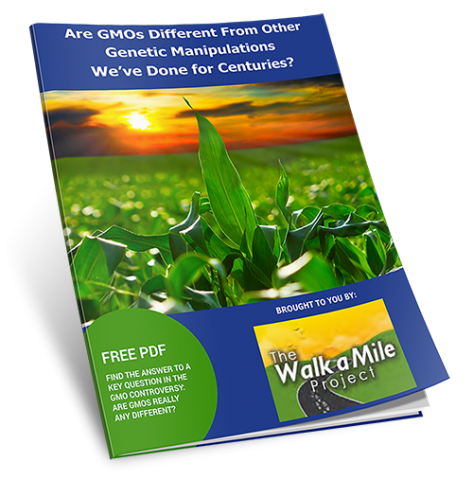Non-Organic Foods and Weight Gain
For months I was trying to lose those pesky three or four pounds, but no matter what I did, I just couldn’t break the barrier. Until this week! Believe it or not, I switched to organic-almost-everything, and the pounds fell off. Can I be 100% certain it’s due to organic food? No. But odds are pretty good that it’s related. For one, I didn’t exercise anymore than usual — in fact, I may have exercised less. In the weeks ahead, I’ll see how the pounds fluctuate, but in the meantime, it brought up a few questions:
So is there a link between non-organic foods and weight gain? Are organic foods healthier than conventional and GMOs?
Previous research from Newcastle University found that on average, organic fruits and vegetables contain 12 percent more healthy plant compounds – resveratrol and other polyphenols, for example – than conventionally grown produce.
“Still, just because an apple is organic doesn’t guarantee the farmer hasn’t piled on the nitrogen, thereby reducing its antioxidant concentrations while increasing its calories,” Benbrook, a research professor at Washington State University’s Center for Sustaining Agriculture and Natural Resources, says.
Some studies, including a 2012 review in the Annals of Internal Medicine, have found that organic and non-organic produce don’t vary greatly in terms of nutrients. While, in general, organic crops may be more nutrient-dense than conventional crops, an organic seal isn’t proof they will be. It just proves the crops were grown without synthetic pesticides, growth hormones, antibiotics, genetic engineering or chemical fertilizers.

Is there a link between non-organic foods and weight gain?
And can less pesticides help you lose weight?
The average American is exposed to 10 to 13 pesticide residues per day, including one to three highly toxic pesticides called organophosphates. Organic production reduces average overall dietary exposure by 97 percent, according to research from The Organic Center, a nonprofit research and educational organization. Benbrook notes that while research doesn’t show that being exposed to those pesticides as an adult will affect your metabolic health or weight, if you eat conventional produce during your pregnancy or feed conventional produce to your child during his first two years, it may affect his future weight.
What about obesogens?
Toxins—known as obesogens—disrupt the function of our hormones and others alter our gut biome, causing an imbalance of good and bad bacteria,” says Patricia Salber, MD, a board certified internist and author of the blog The Doctor Weighs In.
One type of obesogen is triflumizole. If you tend to choose conventional over organic produce due to availability and affordability, here’s some news that may inspire you to make a different choice: A study published in the journal Environmental Health Perspectives has linked triflumizole—a fungicide commonly used on many food crops, especially leafy greens—to weight gain. “Almost all of the common chemicals used on our crops are endocrine-disrupting,” says Salber, “which means they promote fat storage and undermine our body’s ability to build lean muscle.”
Click here to read more about pesticides and weight gain:
http://www.huffingtonpost.com/2015/03/22/organic-lose-weight_n_6909650.htmlTo read more about chemicals and weight gain, click here:
http://www.prevention.com/weight-loss/food-chemicals-and-weight-gain



